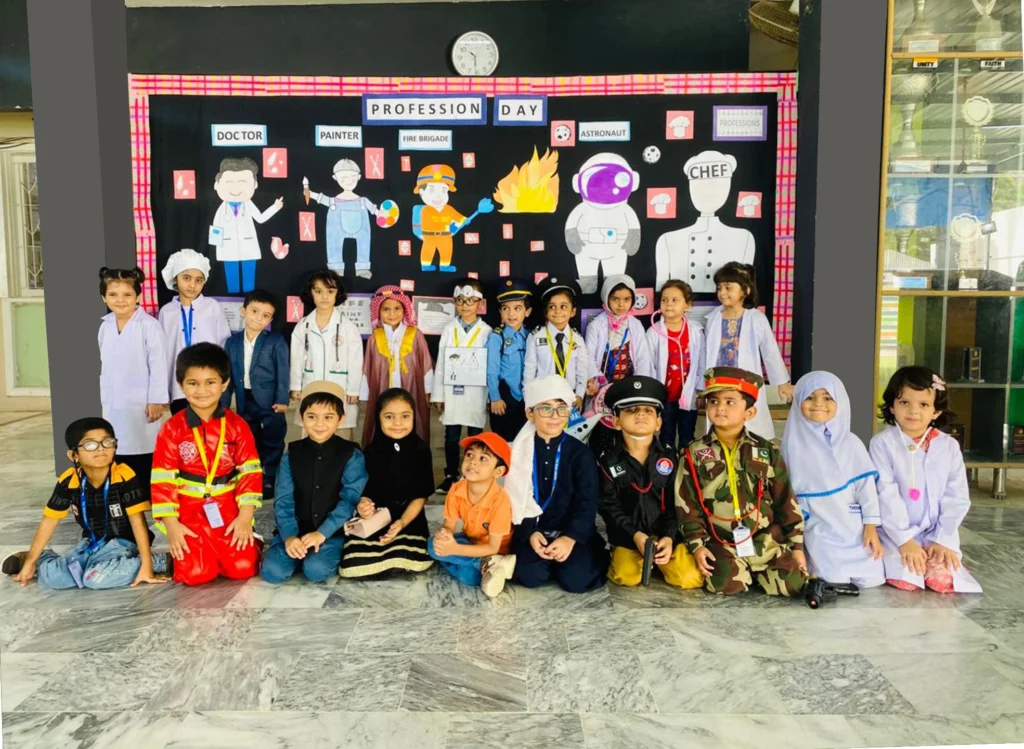At The Benchmark, we believe that every child thrives in an environment of love, structure, and gentle guidance. Preschoolers are naturally curious and full of energy — they’re learning about themselves, others, and the world. Helping them develop good habits and self-control takes patience, consistency, and compassion.
Here are practical, effective strategies to help guide your preschooler’s behavior — with warmth and understanding.
🌿 Gentle Reminders Go a Long Way
Preschoolers have short memories and get distracted easily. You may need to remind them of rules more than once — and that’s completely normal.
Gentle, consistent reminders help children internalize expectations over time.

⚖️ Understanding Consequences
Consequences teach children that actions have results. When used calmly and fairly, they reinforce boundaries without fear or frustration.
1. Natural Consequences
Let your child safely experience the outcome of their actions:
- Refuses to wear a coat? They’ll feel cold.
- Leaves homework unfinished? They’ll see the result at school.
- Forgets to put away a toy? It may get misplaced.
Life’s lessons are often the most effective — but step in when consequences could be unsafe or too harsh.
2. Related (Logical) Consequences
These are directly linked to the behavior:
- Spills juice? They wipe it up.
- Leaves a bike in the driveway? The bike is put away for the day.
- Fights over a toy? The toy rests for 10 minutes.
Logical consequences feel fair, help children think through their actions, and encourage responsibility.
3. Losing a Privilege
Sometimes, your child might lose access to a favorite activity or item after unacceptable behavior.
For example:
- Not cooperating with mom? Skip a fun activity.
- Misbehaving with dad? Miss out on playtime.
Keep it short and consistent. A brief pause in privileges is more effective than a long punishment.
💡 Tips for Using Consequences Effectively
- Be consistent: Apply rules the same way every time.
- Keep them short: Children learn best from small, immediate consequences.
- Stay calm: Address the behavior, not the child.
- Explain ahead of time: When children understand the “why,” they’re more accepting of rules
- Act quickly: Consequences work best when applied soon after the behavior.
- Use for ages 3+: Younger children may not connect actions to outcomes yet.
💛 Encouraging Positive Behavior
Consequences alone don’t build character — positive connection does. Encourage the behavior you want to see.
🌸 Show How You Feel
Help your child see the impact of their actions:

“I’m feeling upset because it’s too noisy for me to talk on the phone.”
This models empathy and emotional awareness.
🌸 Catch Them Being Good
Praise good behavior as soon as you see it:
“I love how you’re keeping all the blocks on the table.”
🌸 Get Down to Their Level
Kneel beside your child when talking. Eye-level communication helps them listen and connect emotionally.
🌸 Listen with Empathy
If your child is upset, reflect their feelings:
“You’re sad because your toy broke.”
This helps them feel understood and calms emotions faster.
🌸 Keep Promises
Follow through on both rewards and consequences. Consistency builds trust, and trust builds cooperation.
🌸 Choose Your Battles
Say “no” only when it really matters. Fewer conflicts create a calmer home.
🌸 Be Strong Against Whining
If “no” means “no,” don’t change your mind later — even if it’s hard. Consistency teaches respect and patience.
🌸 Speak Positively
Tell your child what to do, not what not to do:
✅ “Please close the gate.”
🚫 Not “Don’t leave the gate open.”
Positive phrasing helps children focus on what’s expected.
🌸 Teach Responsibility
Let natural consequences teach accountability:
If your child forgets their lunch, it’s okay to let them feel hungry once. Real experiences build independence.
🌸 Give Them One Reminder
Avoid nagging. Give one calm reminder and follow through if needed.
🌸 Involve Them in Family Tasks
Simple chores help children feel capable, responsible, and valued.
🌸 Prepare for Challenges
Plan ahead for busy or tricky moments. Give five-minute warnings before transitions to help them adjust.
🌸 Keep a Sense of Humour
Laughter diffuses tension. Be playful — pretend to be a “tickle monster” or make funny animal sounds — just keep humour kind, not teasing.
🌸 Be the Role Model
Children learn more from what we do than what we say.
If you want your child to be kind, respectful, and spiritually connected — show it through your own actions.
“If you want your child to greet with Salam, greet first.”
“If you want your child to read Qur’an, let them see you doing it too.”
🌷 Final Thought
Guiding a preschooler isn’t about perfection — it’s about presence, patience, and love.
When you set clear expectations, model positive behavior, and follow through with calm consistency, your child learns responsibility, empathy, and self-control — the true foundations of lifelong character.
At The Benchmark, we partner with parents to nurture children who are confident, kind, and grounded in values that last a lifetime.
